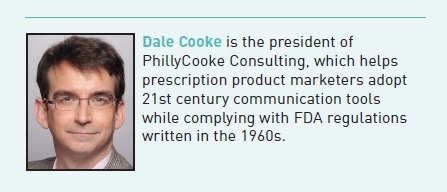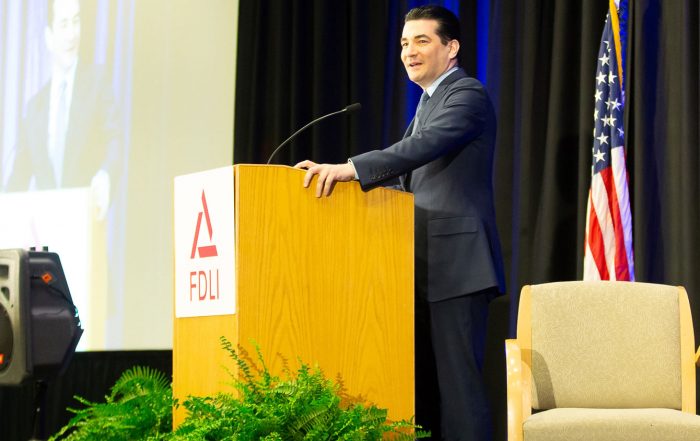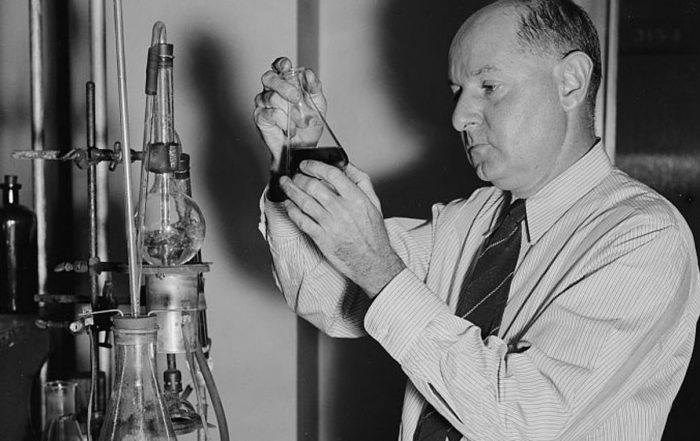
Careers in Food and Drug Law
by Dale Cooke
On Wednesday, March 28, I moderated a Food and Drug Law Institute Careers in Food and Drug Law panel discussion at the Drexel University Thomas Kline Institute of Trial Advocacy. Although I have been involved with FDLI for more than a decade, it was only after I enrolled in law school that I learned about FDLI’s extensive program dedicated to new food and drug lawyers (NFDL), including law students.
 This event was the first step in bringing that program to students outside the Washington, DC metro area. In DC, the program has been vibrant for several years. Nearly 40 students from Philadelphia area law schools and a few local FDLI members registered for the program.
This event was the first step in bringing that program to students outside the Washington, DC metro area. In DC, the program has been vibrant for several years. Nearly 40 students from Philadelphia area law schools and a few local FDLI members registered for the program.
The evening kicked off with an overview of FDLI from Amy Rick, the president and CEO of FDLI. Laura Brown, FDLI’s educational programs director, then provided an overview of FDLI’s academic programming and the benefits available to students including:
- Student Writing Competition
- Volunteer Opportunities to Attend Conferences for Free
- Training and Networking Events
Following these presentations, a panel discussion featuring attorneys working in the food and drug area shared career advice with the attendees. Rick shared her impression based on being an attorney in Washington for more than 30 years that in general, food and drug attorneys are happier than other practice areas in part because the work by its very nature involves issues that affect everyone’s lives. “Everybody eats,” she said. Friends and relatives can understand the role of food and drug attorneys, whereas other attorneys frequently find it difficult to explain their work and its importance.
Paul Savidge, the US General Counsel at Spark Therapeutics, spoke about what it is like to work in a start-up environment on cutting-edge scientific developments, particularly working in the area of orphan diseases.
Marlene Shea, Senior Counsel, Regulatory Law for Johnson & Johnson, spoke about her decision to move from a law firm to working in-house, and the differing quality of life.
Commander Gayle Lawson, the pre-approval manager for pharmaceuticals at the Philadelphia District Office of the Food and Drug Administration, discussed the relationship between government service and the public health, what it is like to actually work with companies to rectify issues identified during a site inspection, and the excitement and challenges associated with being part of the Public Health Service.
Yvonne McKenzie, formerly a partner in a law firm and now at Merck & Co., Inc., talked about the need for food and drug attorneys to always be interested in learning because of the ever-changing nature of the law in this area and ongoing scientific developments. In response to a student question about some of the hot areas where change is expected, McKenzie talked about the Food Safety Modernization Act (FSMA). Although signed into law seven years ago, FDA continues to roll out new aspects of FSMA. Such ongoing changes (which are merely a fact of life for food and drug attorneys) mean that clients need to pick up the phone to talk to their attorneys to ensure legal compliance.
During the reception following the panel, students and panelists exchanged contact information and continued the discussion. Rick mentioned her desire to build on the success of the evening’s program with future events in other cities, thereby continuing the outreach to the next generation of food and drug lawyers.
Programs
Update Magazine
June/July 2018













